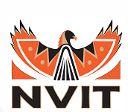This 28-week (840 hours) program takes a student with little or no previous experience in the welding trade and supplies them with the necessary skills to seek employment as an apprentice welder.

In BC, an individual can become a certified Welder by completing an Industry Training Authority (ITA) apprenticeship program or by challenging the certification.
Apprenticeship programs are for individuals who have an employer to sponsor them, and challenge programs are for individuals who have extensive experience working in the occupation and wish to challenge the certification.
Foundation programs provide adults and youth who do not have work experience or employer sponsorship with an opportunity to gain the knowledge and skills needed to enter the occupation.
Goals
The Welding Foundation Certificate program was prepared with the advice and assistance of the Industry Training Authority and their associates. General areas of competency and associated learning tasks have been identified by industry and examples are provided below.
Upon successful completion of this program, students will be able to:
Activities And Design
This 28-week (840 hours) program takes a student with little or no previous experience in the welding trade and supplies them with the necessary skills to seek employment as an apprentice welder.
This foundation program prepares learners for entry level positions as apprentice welders in most sectors of the economy including manufacturing, construction, transportation, resource extraction, and resource development.
Students engage in a variety of classroom and shop activities where they learn both theoretical principals of welding and hands-on processes to master practical welding skills.
Program Duration
The Welder Foundation program consists of 28 weeks of technical training.
Evaluation
Theoretical concepts may be evaluated by written exams, assignments, case studies, presentations, and/or completion of a journal.
Practical performance is assessed by instructor observations of students in work experience and field situations, and is based on mid-term and/or final evaluations. All evaluations are consistent with the NVIT Grading System.
Students are assessed based on an 80% in-school percentage score and 20% Standard Level Exam percentage score. For more information, please refer to https://www.itabc.ca/sites/default/files/docs/OPSN-2018-010-Welder-Harmonized-SLE-Launch.pdf.
Credential
Graduates from this program will receive an Industry Training Authority Certificate of Completion, technical training credit for Welder Level 1 and Level 2 and 300 work-based hours once registered as a Welder apprentice.
After completion of the program, it’s recommended that students gain another 2,700 hours of hands-on field experience before returning to school for Level 3 Technical Training.
Entrance Requirements
Any Learner, Anywhere
© 2025 coursetakers.com All Rights Reserved. Terms and Conditions of use | Privacy Policy